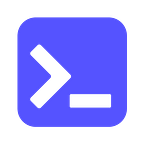How do you write a meeting agenda?
What is a meeting agenda?
A meeting agenda is a document that lists the goals of the meeting, the topics that will be discussed, and the time set for the meeting. The aim of a meeting agenda is to utilize the allocated time for the meeting in a way that maximizes productivity. A good meeting agenda is like a roadmap that offers a clear path to reach the goals of the meeting smoothly. As a result, a meeting agenda template needs to be crafted in detail while also leaving space to allow for changes.
The importance of a well-structured meeting agenda
The key to a successful meeting is a good meeting agenda. In most cases, people diverge from the main goals of the meeting and end up discussing things that are irrelevant to the meeting’s original propositions. This not only wastes time but also takes away focus from the more important tasks that require immediate attention.
A meeting agenda with a proper template ensures that the team has sufficient time to fully prepare before the meeting. This can include sharing updates about the project, putting forward suggestions for an improved workflow, and noting down any obstacles team members are facing. When team members are aware of the upcoming meeting’s topics, they’re better able to prepare, rather than gathering their thoughts at the very instant of the meeting itself. A thorough meeting agenda template serves as a tool for getting the team on the same page before the start of the meeting.
Meeting phases
Every meeting goes through three main phases to ensure maximum productivity:
- Premeeting
- During meeting
- Postmeeting
Premeeting
Before the meeting, project managers should talk to their team and collect their concerns as well as get updates on the progress of the given project. This helps in establishing a boundary around what to concentrate on during the meeting. Having the topics planned out beforehand refines the overall goals of the meeting on the agenda.
During meeting
The next phase is to follow the laid-out plan from the meeting agenda template so that the discussion stays on track and all the important topics are covered. Managers should encourage each team member to participate and share their ideas, but they should not allow the meeting to extend beyond its set time, because this time constraint is what keeps the meetings focused on the real issues.
Postmeeting
After the meeting, it’s important to do a quick review of the meeting so that everyone has the opportunity to recall the objectives discussed during the meeting. Managers should follow up on team members after a set period to ensure that the necessary actions are implemented.
Writing a successful meeting agenda
Successful meeting agenda templates have a proper structure that follows a general pattern. An effective meeting agenda should do the following:
- Make opening remarks.
- Provide a quick catch-up for the team members.
- Define the meeting’s goals and objectives.
- Discuss the successes and failures since the last meeting.
- Get updates on the previous week’s tasks.
- Evaluate team performance against set targets.
- Outline the main points of discussion.
- Outline the time assigned for each topic of discussion.
- Assign weekly priorities for each team member.
- Discuss any potential roadblocks.
- Suggest areas for improvement.
- Set aside additional time for follow-up questions and feedback.
- Summarise and review of the meeting.
This structured approach for a successful meeting agenda template is key to ensuring that meetings are efficient and productive.
Best practices for writing a successful meeting agenda
Structure alone can’t guarantee the success of a meeting. In order to leverage a meeting agenda, managers should adopt a handful of practices when crafting them. We’ve picked out the best practices for writing an effective meeting agenda. These are as follows:
- Circulate the agenda to the team before the meeting.
- Keep the meeting agenda concise and focused.
- Remain flexible in adopting the meeting agenda.
- Use clear and specific language (no need for extensive technical jargon).
- Prepare relevant questions to the topics of discussion in advance.
- Manage the time for each topic of discussion efficiently.
Final word
A well-structured meeting agenda template clarifies the topics under discussion, the team’s expectations, and the time allocated for each task. When every member of the team is aware of the meeting’s objectives, they are better able to actively engage by preparing questions and crafting solutions to the existing problems in advance. A detailed meeting agenda template serves as a checklist for managers, guiding them through the critical points and ensuring that the discussion stays on track.
